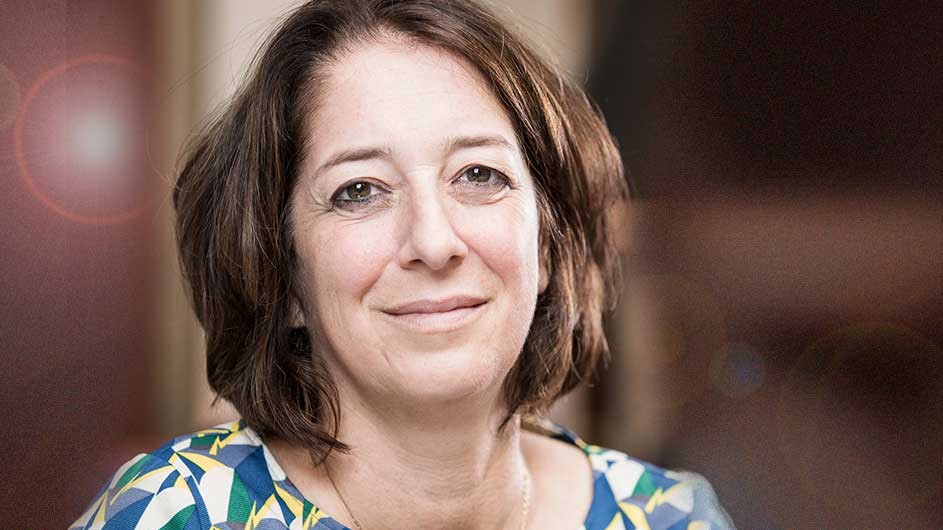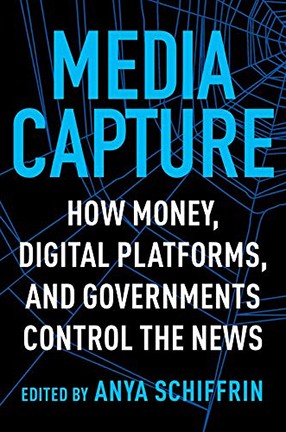Who Controls the Media Today?
“Media Capture,” the new book edited by Anya Schiffrin, provides some answers.

There are many media systems across the globe that claim to be free, yet whose independence has been eroded. As demagogues rise, independent voices have been squeezed out. Corporate-owned media companies that act in the service of power increasingly exercise soft censorship. Tech giants such as Facebook and Google have dramatically changed how people access information, with consequences that are only beginning to be felt.
Media Capture: How Money, Digital Platforms, and Governments Control the News, edited by Anya Schiffrin, a lecturer on global media, innovation, and human rights at SIPA, features analysis from journalists and academics about how formerly independent institutions fall under the sway of governments, plutocrats, and corporations. Contributors include Emily Bell, Felix Salmon, Joshua Marshall, Joel Simon, and Nikki Usher.
Schiffrin talks about the book with Columbia News, and also touches on how reading has become essential for her during the pandemic and her ideal dinner party.
Q. Why did you write this book?
A. My father and grandfather were both book publishers who eventually lost their jobs after their firms were sold to larger companies. For this reason, I’ve always been attuned to the complexities of corporate ownership of the media. When a few economists (including Andrea Prat) began studying a phenomenon called “media capture,” I became intrigued, and relieved to know that there are analytical ways of thinking about the problems I had seen firsthand.

Q. How have the events of the past year influenced your thinking on the media?
A. The last year has shown the dangers of social media and the control of information by large tech companies. Obvious examples are the disinformation around the U.S. elections and the COVID-19 vaccinations. Understanding the power these large companies have, and thinking of ways to regulate them, is part of why Media Capture is timely and all too relevant.
Q. What types of books do you read for relaxation? Can you recommend any that you've enjoyed recently?
A. The pandemic has made reading more essential than ever—partly escapism and partly the need to understand the crazy, sad world we live in. I love giving books and book recommendations, and my current three picks are: Heavy by Kiese Laymon, which is about addiction, racism, and academia; The Street by Ann Petry, which is a horrifying 1946 novel of economic exploitation and sexual assault set on 116th Street in Manhattan; and There is Confusion by Jessie Redmon Fauset, which is about a complicated love triangle between three friends in New York and Philadelphia in the 1920s.
Q. What are your summer plans?
A. When I can, I go to Cadaqués, which is 90 minutes north of Barcelona. My mother is from Spain, but I didn’t discover Cadaqués until the late 1980s. It’s got everything I want: long walks, fresh fish, a few old friends who’ve been going there for decades. Here’s hoping.
Q. You're hosting a dinner party. Which three scholars or academics, dead or alive, would you invite, and why?
A. Hannah Arendt, because she lived through and thought about fascism. Clyde Miller, because I’ve been writing about his 1930s program at Teachers College to teach media literacy in U.S. schools (and his anti-racist curriculum in Springfield, Mass.), and the archives do not fully explain whether his political beliefs were the reason he was let go by Columbia in 1948. And Jean Godin des Odonais, an 18th-century French cartographer and naturalist, because I loved The Mapmaker’s Wife: A True Tale of Love, Murder, and Survival in the Amazon. I want to hear him describe his studies of the shape of the earth, and I hope he brings his wife, Isabel Gramesón, so she can enthrall the table by describing her epic journey through the Amazon in the 1700s.
Check out Books to learn more about publications by Columbia professors.